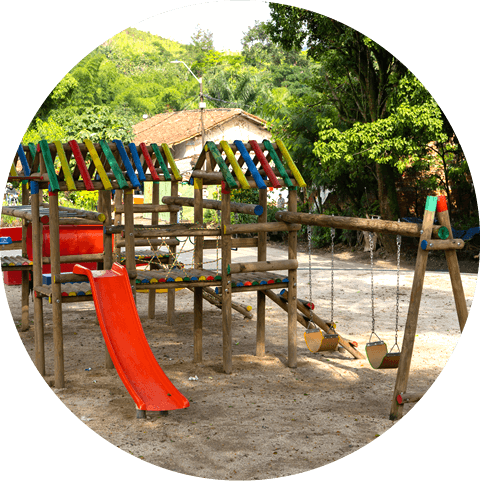Vista Nieve Sierra Nevada de Santa Marta

Social development spaces in communities where Oro Molido Foundation has an impact are essential for interaction, better quality of life, education, and recreation of communities. These spaces provide dignity to the coffee-growing community by facilitating mobility and by offering spaces for interaction.
Our work on improving and building community spaces has allowed us to work together with local governments to improve the street network of the most isolated communities within our area of influence. In addition, the Foundation has contributed to the improvement and construction of spaces for integral development of children and young people, such as the arts classroom and recreational parks
Our socio-economic program is composed of two phases: in the first phase, family vegetable gardens are established through training and provision of basic supplies so that families achieve food security and sovereignty. In the second phase, we stimulate creation of rural markets so that families can sell surplus produce from their gardens or other artisanal products from the region.
Our projects also seek to recover and dignify regional knowledge by supporting local producers, who are engaged in activities that have been passed down from generation to generation, and by supporting the trades that are native to the areas of influence. Our main goal is that agricultural workers feel proud and recognized by their work in the field.